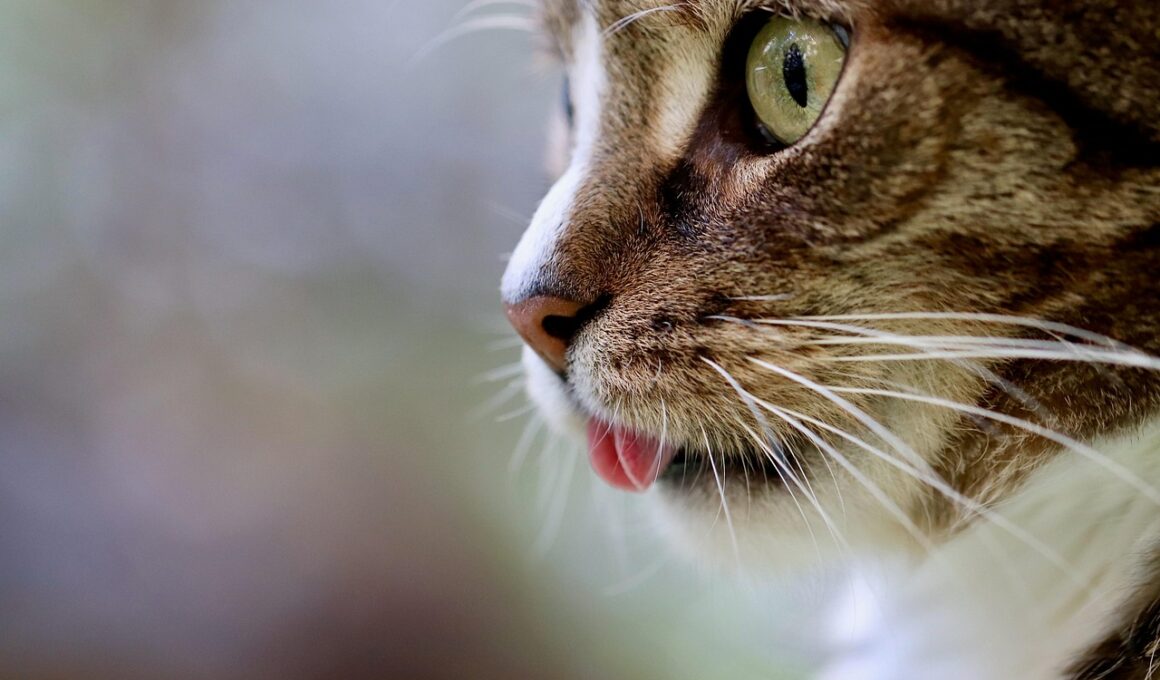Updating Your Will for Changes in Your Cat’s Care Requirements
When updating your will, consider the care requirements of your beloved cat. Cats are unique companions, and their needs can change due to health issues or lifestyle adjustments. Ensure you clearly outline your cat’s requirements, so caregivers understand what is needed. For example, specify dietary preferences, medical conditions, or specific routines. Additionally, consider who will take on the responsibility of caring for your cat if something happens to you. It’s essential to choose someone who is familiar with your cat’s habits and personality. Create a detailed profile of your cat’s habits and individual needs. Including these details in your will ensures your cat receives proper care. Discuss your plans with your chosen caregiver so they feel prepared to take on this responsibility. Your cat’s well-being should always be a priority. Think of any contingencies that may arise, such as potential relocation or financial support. You may decide to allocate funds specifically for your cat’s care and maintenance in your will, which can help your executor fulfill these duties without financial strain. Consulting a legal professional for proper guidance throughout the process can ensure you meet all legal requirements.
Part of ensuring your cat’s needs are met includes clearly designating who will assume cat care responsibilities. It’s a significant comfort to know that your furry friend will be cared for after you’re gone. Thoughtfully select someone reliable and passionate about animals; this could be a close friend, family member, or even a professional pet caretaker. When you outline care requirements, include crucial information such as contact details for your vet or any behavioral quirks your cat may have. Clear documentation enhances understanding for whoever will take over care. Documenting your wishes will aid your executor in fulfilling obligations. Regularly updating your will is vital because life circumstances can change. Perhaps your chosen caregiver may move, or your cat can develop new health concerns that require special attention. Ensure such changes are reflected promptly in your will. Regular reviews create a relationship of transparency, allowing for easier transitions should the need arise. Maintaining open communication with those involved also helps in addressing concerns. Overall, taking these steps demonstrates your love and commitment to your feline companion. Establishing such not only enhances your cat’s care but also eases the emotional burden on your loved ones.
Considerations for Pet Owners
One primary concern for pet owners is funding veterinary care. This can become a financial issue during unexpected circumstances, such as serious health issues that arise suddenly. To prepare for this, you may wish to consider setting aside funds in your will specifically for your cat’s expenses. Allocate an amount that reflects potential healthcare costs and regular maintenance needs, such as grooming or feeding. These documents can provide reassurance to your caregivers and ensure your pet’s needs are a priority. Include specific details, such as potential dietary options, vet clinic preferences, or alternative home situations. Consider adding a trust fund or pet insurance to your legal preparations when it comes to finances. Should your circumstances change, this approach helps ensure your cat remains covered in various situations. Having this financial foresight can relieve stress for both yourself and your caregivers. Remind the designated individual about the ability to use these funds, ensuring no uncertainty exists regarding their access. Additionally, open discussions about these aspects heighten awareness and preparedness.
Pet estate planning doesn’t only revolve around financial aspects; emotional support for your cat also matters. Your feline companion thrives on a stable environment, so maintaining familiarity is vital for their emotional well-being. If possible, outline your cat’s daily routines, favorite toys, or even specific places at home that they prefer. These details become essential for the caregiver to maintain a sense of normalcy for your pet. Cats often benefit from consistency, so keeping their lives as predictable as possible helps ease the transition during distressing times. If your cat has a favorite blanket or toy, consider including those with them throughout any potential transition. Personalizing the care instructions demonstrates genuine consideration for your pet’s emotional bonds. Moreover, scheduling regular visits from trusted friends or family can provide additional emotional reassurance for your cat. These visits allow your furry friend to maintain social connections and help reduce potential anxiety. Prioritize your cat’s emotional support by considering their lifestyle, which contributes to happier living conditions. Overall, writing these plans into your will outlines essential commitments, which substantially ease any anxiety and uncertainty for your cat.
Legal Considerations in Pet Estate Planning
When addressing pet estate planning, legal aspects play a crucial role. Pet owners must adhere to the guidelines in their local jurisdiction regarding animal care. It’s imperative to ensure that you understand local laws concerning pet guardianship and care. Some jurisdictions may have stringent requirements when establishing the custody of pets, leading to potential complications if improperly addressed in your will. Familiarize yourself with regulations that affect your specific situation to prevent any issues after your passing. It’s also necessary to understand the distinction between pets and other assets in legal terms. Pets are often treated differently under various laws, which can impact how they’re cared for after their owners pass away. Engaging a legal professional specialized in estate planning can be invaluable, as they can navigate the intricacies of your state laws. Detailed documentation ensures your pet’s care requirements are clearly stipulated. Provide comprehensive instructions to ensure caregivers fully grasp their responsibilities. Having a reliable estate planner can facilitate effective and enforceable estate documents that resonate with your pet’s best interests from a legal standpoint.
In addition to understanding legal structures, thorough communication about your plans can greatly benefit all parties involved. Encourage open dialogues with your chosen caregiver or family members about the arrangement’s implications. Regular conversations about your cat’s care preferences promote transparency and trust, making all parties feel informed and connected. This also allows for addressing any potential questions or concerns before they arise, which can cause stress or confusion after your passing. Moreover, your pet can sense the emotional climate, so ensuring your chosen care arrangements are communicated down to the smallest detail can help your cat adjust, leading to a smoother transition. Document these discussions along with your will to ensure everyone is on the same page. Highlighting the importance of these conversations not only benefits your cat but strengthens relationships with those you trust to care for them. Ultimately, a unified front creates an environment of understanding and assurance. With proper planning and communication, you can ensure your pet will receive proper love, care, and attention, helping friends feel more secure in their understanding of their responsibilities.
Maintaining Your Estate Plan
Finally, it’s crucial to recognize the importance of reviewing and maintaining your estate plan regularly. Changes in your life circumstances can affect the arrangements you’ve set for your cat’s care. Your preferred caregiver may experience changes in their ability to care for your pet due to location, personal circumstances, or health reasons. Regularly scheduling times to revisit your will keeps your plan current. Incorporate any major life changes—such as new pets, relocations, or updates in your employment status—into your estate discussion. Routine check-ins provide an opportunity to refine details and ensure that your plans align with your cat’s evolving care requirements. Communication with family or friends involved can also assist in identifying any potential issues or corrections needed to the original plan. Remember that being proactive can mitigate unforeseen complications. Document all changes clearly to ensure everyone remains informed and aligned with your wishes. Encouraging flexibility can help bolster the overall ability of caregivers to adapt to new realities while providing your cat with the love and care you intended.
In summary, taking the time to prepare a comprehensive will for your cat’s care involves much more than just a simple mention within your estate planning documents. It addresses various aspects of both financial and emotional support, which significantly contributes to an easier transition for your beloved companion. Whether through funding veterinarians, keeping an open line of communication with caregivers, or ensuring legal considerations are fully addressed, thorough preparation makes all the difference. Each element creates an assurance that speaks volumes to the care your pet will receive after you pass. Regularly revisiting these plans also keeps them relevant and effective, ensuring your loved one’s needs never fall through any cracks. The consistency provided by maintaining a dedicated estate plan reassures your cat, promoting a sense of continuity. Establishing these frameworks showcases thoughtful foresight, protecting both your cat’s needs and supporting those willing to care for them. Enhance your estate planning process by thinking of your cat as a cherished family member. By approaching this necessity with love, commitment, and strategic planning, you’re setting the stage for your furry friend’s continued happiness and well-being.


